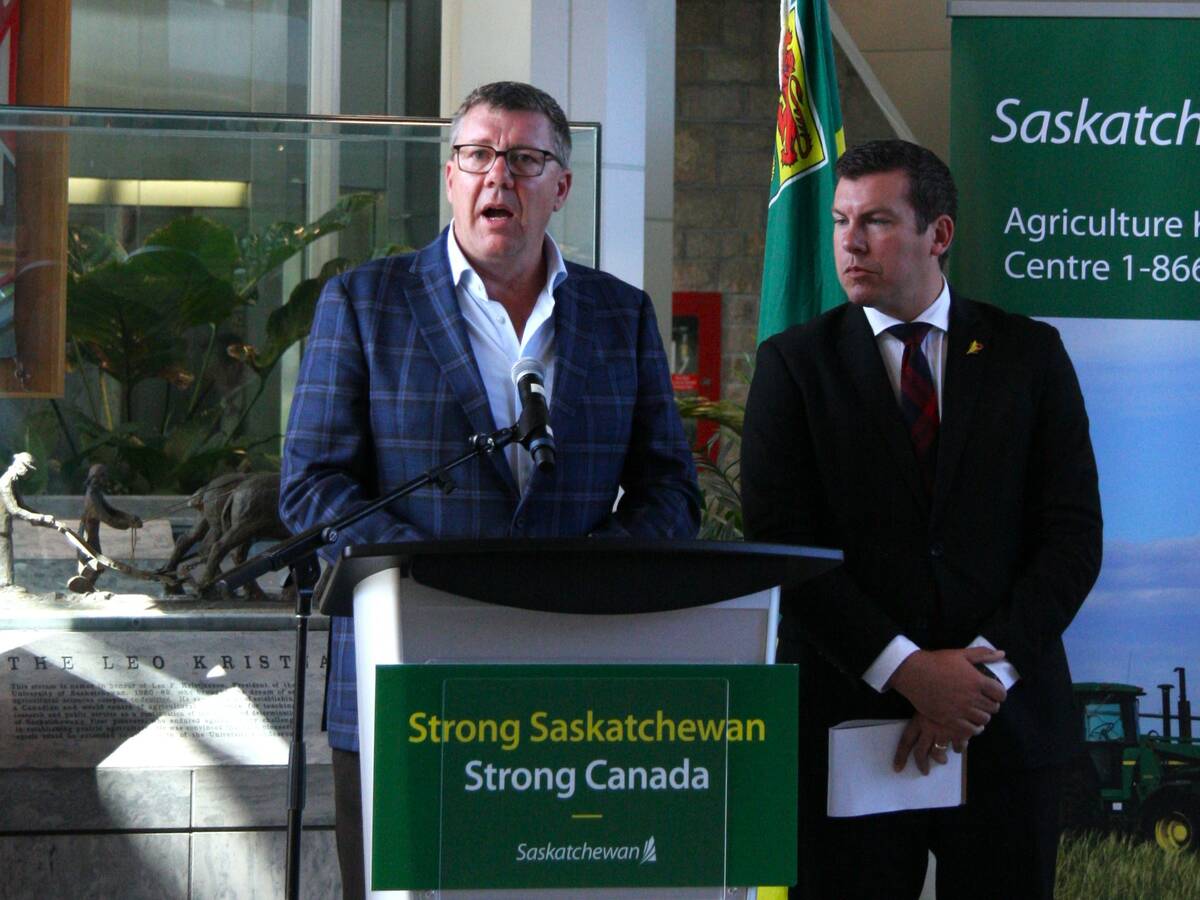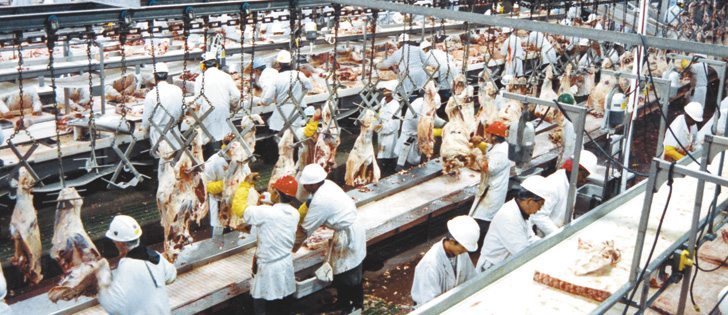One of Canada’s leading humanitarians is uneasy about Africa’s green revolution being championed by Monsanto and the Bill & Melinda Gates Foundation.
“Maybe I’m paranoid. Yes, I am paranoid. I’m a socialist. I have to be paranoid,” said Stephen Lewis, former United Nations’ special envoy for HIV/AIDS in Africa and Canadian ambassador to the UN.
Lewis is wary that people who once worked with Monsanto are now part of the Bill and Melinda Gates Foundation, which is deeply committed to boosting agricultural productivity in Africa.
Read Also

Key actions identified to address canola tariffs
Federal and Saskatchewan governments discuss next steps with industry on Chinese tariffs
“There is a very strong, obvious solidarity between them,” Lewis told delegates attending the National Agriculture Awareness Conference in Saskatoon.
That alliance doesn’t sit well with the former leader of Ontario’s New Democratic Party.
“I am a democratic socialist. I have a natural apprehension and anxiety about the behaviour of multinational corporations.”
Lewis said there is growing skepticism that the first Green Revolution, which was funded by the Rockefeller and Ford foundations, saved billions of lives by encouraging intensive farming practices in Asia.
It is credited with reducing hunger and poverty by 11 percent. But if China is taken out of the equation, hunger increased by 11 percent during the 1970s and 1980s, he said.
Critics contend that the revolution has resulted in decreased genetic diversity and more problems with pests, soil erosion and water shortages.
The Bill and Melinda Gates Foundation has invested $264.5 million US into the Alliance for a Green Revolution for Africa. Lewis, who has devoted a good portion of his humanitarian efforts to that continent, isn’t willing to endorse the new green revolution for fear that it will have the same failings as the first one.
He suggested the revolution will rely heavily on Monsanto’s biotechnology efforts, despite the fact that the Alliance for a Green Revolution in Africa states on its website that it is not funding the development of new crop varieties through use of genetic modification.
During the question and answer portion of his presentation, a delegate asked Lewis why he opposed the use of GM crops such as those that could bring drought tolerant varieties to Africa.
“I’m not going to pretend to be fully knowledgeable on this,” he said.
But he added that some respected European countries oppose the technology and that gives him reason to withhold his endorsement.
“I don’t know enough to render a judgment. I know enough to render caution,” he said.
Trish Jordan, spokesperson for Monsanto Canada, had another question for Lewis.
“How do we get to that point in Africa where everybody who has a part of that solution, or a tool in the toolbox that will lead to that solution, can participate without being questioned about their motives?”
Lewis acknowledged it as a fair question but said he can’t get past his discomfort with one foundation driving the global health agenda by spending more than many governments on foreign aid.
He was also highly critical of the
Canadian government on that front, noting former prime minster Lester B. Pearson originally proposed the goal of G8 countries contributing 0.7 percent of their gross national product to foreign aid annually.
“We’ve never got even halfway there,” Lewis told reporters.
Britain, France, Germany and Italy have at least established goals for achieving that target before 2015, said Lewis. Canada has no similar goals.
The 2015 date is significant because that is when poverty and hunger were supposed to be halved from 2000 levels, according to the United Nations’ millennium development goals.
Lewis said he has been pleasantly surprised by the way developed countries have embraced those goals.
However, he said there is no way they are going to meet the UN’s 2015 target, especially after the World Bank raised its definition of poverty to people living on $1.25 per day, up from $1 a day.
“A quarter of humankind is living at less than $1.25 a day,” he said.
The vast majority of Africa’s 53 countries won’t come close to achieving the millennium development goals, he said.
“This isn’t a cry of despair or doom on my part. This is just an objective assessment of where we are in 2009.”

















